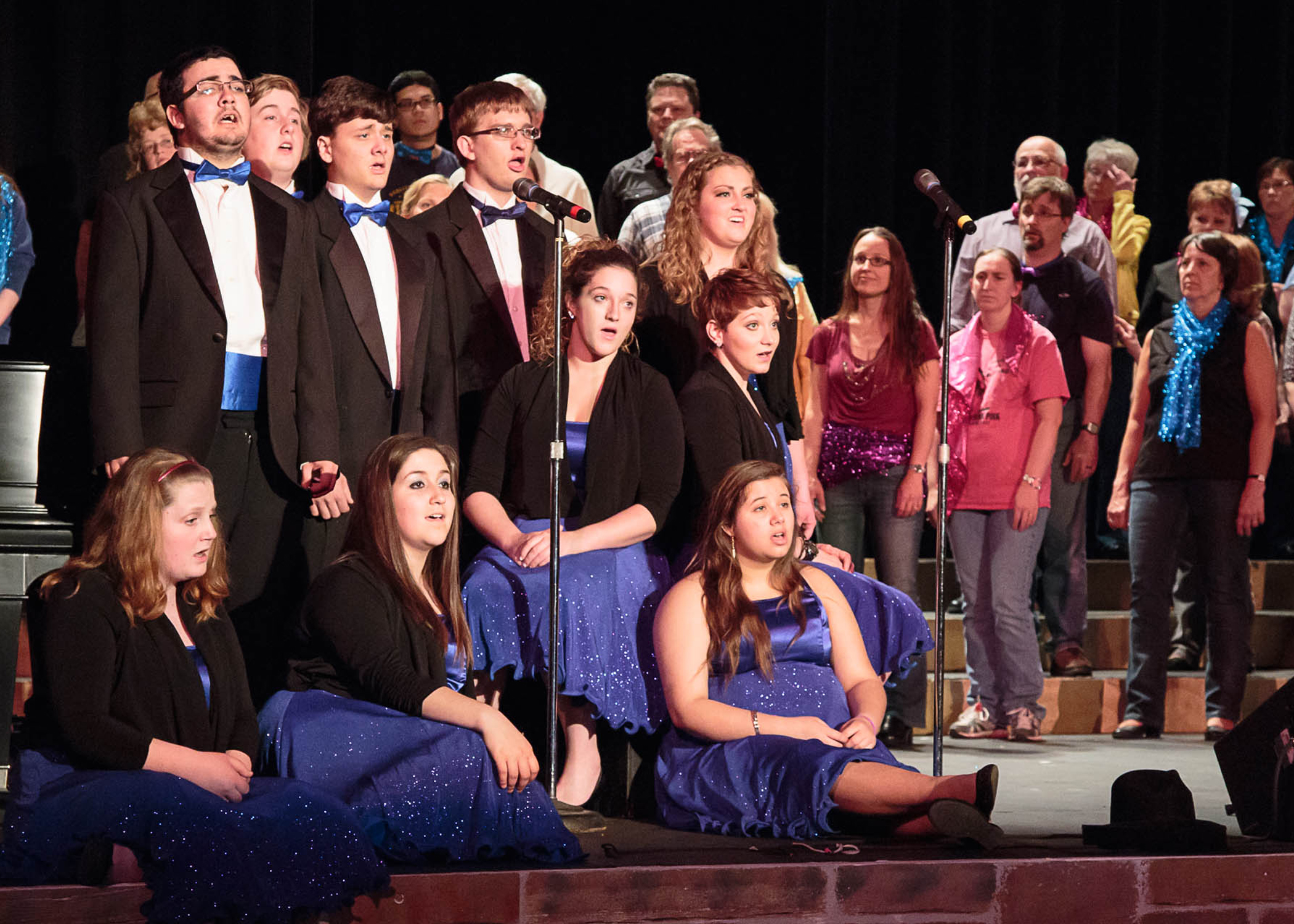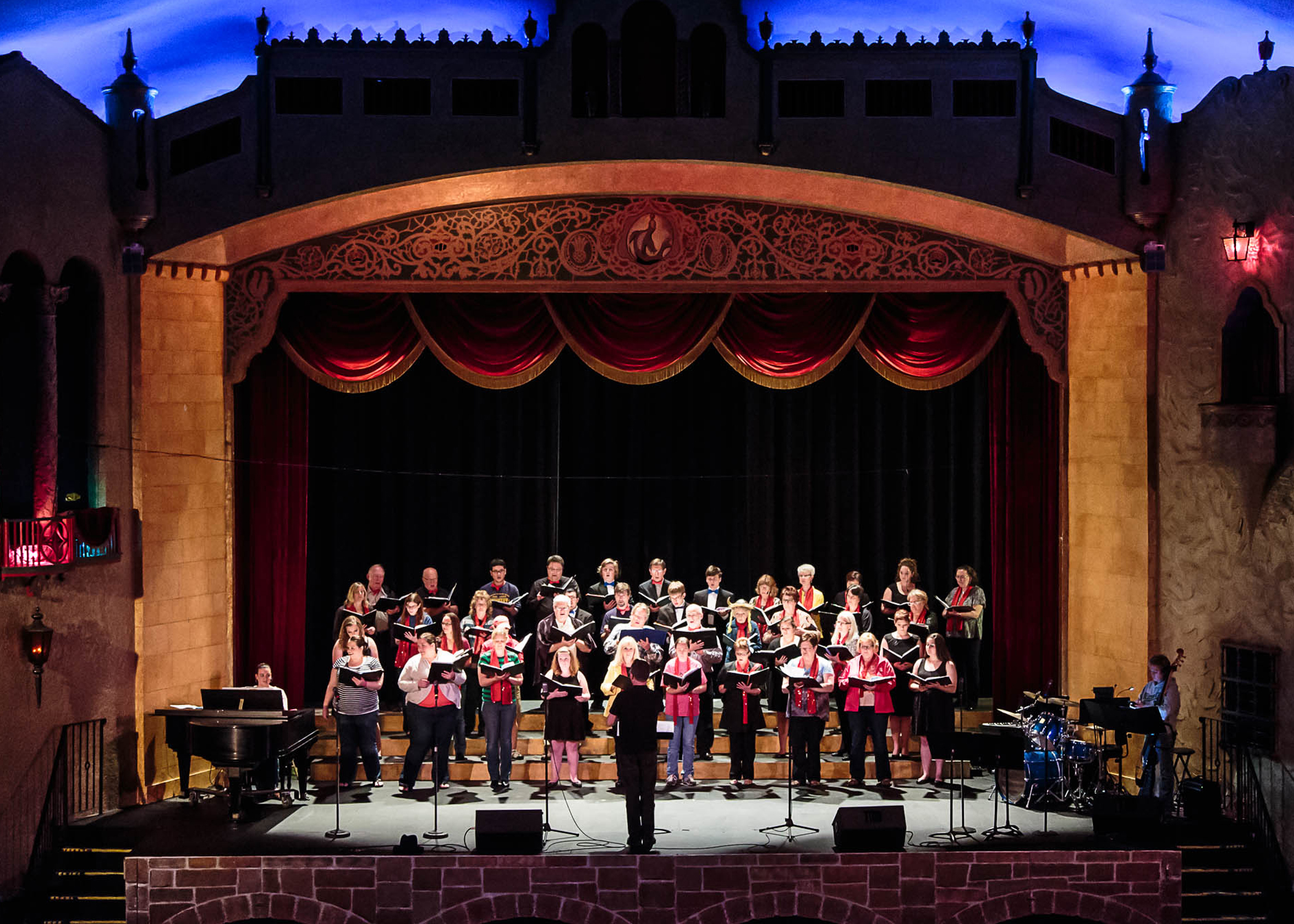
Online Music Theory Courses
Take Your Music Courses Online with Riverland Community College
Enroll today in first-year online music theory courses that include both sight-singing and ear training development. Our best-in-class distance education reaches students across the country who are unable to attend traditional classroom music courses.
What makes our program unique?
- Our synchronous approach to classes means you'll be able to participate in real time along with traditional classroom students.
- On-ground classes are held at our Austin, Minnesota campus and distance learners are connected using video meeting software.
- All classes are recorded and archived for your use, and faculty offer dedicated office hours for one-on-one meetings and discussion.
- Beginning in Fall 2020, the hands-on time for students creating their own music through improvisation, composition - both alone and in groups - will double.
- Riverland was one of the very first colleges in the nation to offer fully-online music theory options.
- Aural skills instruction and practice are done both live and with the aid of software and tutorial websites. Unlike other online courses, these are not self-paced. Students are expected to meet the course requirements as stated in the syllabus/schedule for each course.
- Unique scheduling includes offering Theory and Musicianship Skills II in Summer 2021. Students needing to take/re-take 2nd semester theory and aural skills can do so and jump in to the 3rd semester level for Fall.
View our offerings and choose your courses here.
Theory-Related Courses Offered in the Live/Online Format
Introduction to Songwriting is an introduction to the art and craft of songwriting. From inspiration to final product, students learn to create original songs while employing technology to aid in the creation, presentation, and/or distribution of their music. Examples from various styles, traditions, and contexts will be studied as models for strong, affective writing. Recommended: experience playing an instrument and/or basic note-reading ability. 1 Cr - 1 lect, 0 lab.
This is the second semester of music theory sequence and is designed for music students or anyone desiring to learn the theoretical aspects of music and to improve skills in reading and notating music. Emphasis is given to harmonic and melodic structure and cadences. This course also integrates sight-singing and ear training. Prerequisite: MUSC1101 or instructor approval. (4 Cr - 3 lect, 1 lab). Course cost: $841.
Fundamentals of Music introduces the foundations of music theory. Students will study elements of rhythm, melody, and harmony, as well as learn basic keyboard skills. This course is designed for students with little or no prior musical experience and serves as a prepatory class for other music courses, including MUSC 1101. MnTC (Goals 6/HU and 2/CT) 3Cr - 3 lect, 0 lab.
This course is the first in the sequence of music theory courses designed for music students, elementary education students, or anyone desiring to learn the basics of music and to develop or improve skills in reading and notating music. It includes pitch and rhythmic notation, major, minor and modal scales, key signatures, triads, beginning melody and harmonization. This course also integrates sight singing and ear training. MnTC (Goals 6/HU and 2/CT); 4 Cr - 3 lect, 1 lab. Course cost: $841.


Students Registering for an Online Course Should Have:
- Organizational and self-motivational skills
- Audio recording capabilities
- Reliable, high-speed internet
- Access to a music keyboard or piano
- A desktop or laptop computer (some assignments and activities can be completed through tablet or phone, but most cannot)
- General familiarity with transferring audio files (recording, uploading), though some tutorials will be available
- A basic knowledge of music (pitch & rhythmic notation, note names, clefs, meter, and basic terminology)
- Completion of basic music lessons (these may ensure you are ready):
- https://www.musictheory.net/lessons (complete "The Basics" and "Rhythm and Meter") or
- 10 short videos by MusicTheoryGuy
